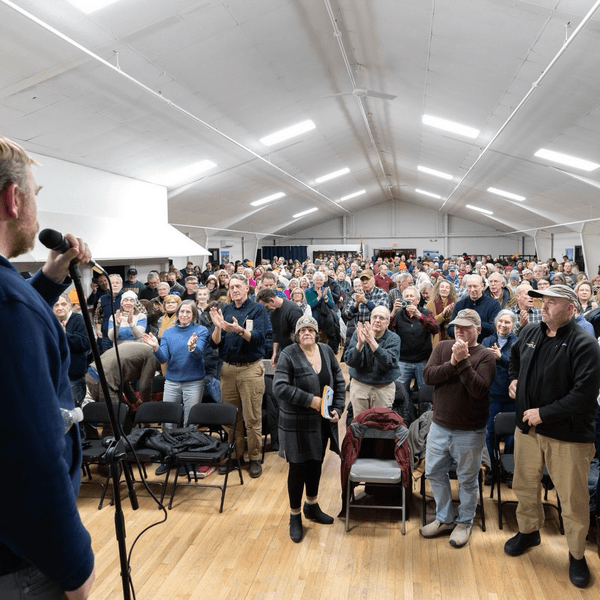Campaign finance reform and the 2010 landmark Citizens United decision were the subjects of a speech Monday by former U.S. Sen. Russ Feingold at the University of Montana in Missoula.
Feingold said the Supreme Court decision to allow corporations to spend unregulated amounts of money on elections was "one of the great turning points, not only in campaign finance, but also in our country's history ... I believe we're in a constitutional crisis," the University of Montana News reported.
Feingold served for 18 years as a Democratic senator from Wisconsin and was the lone senator to vote against the Patriot Act in 2001. He voted against the Iraq War, and in 2005 was the first senator to call for the U.S. to withdraw from that country.
In 2006 Feingold voted to censure President George W. Bush for authorizing an illegal program to spy on American citizens on American soil and then misleading Congress and the public about the program's existence.
Earlier on Monday, he presented a seminar titled "Campaign Finance in the Post-Citizens United Era."
"Montana is really one of the most, if not the most important state in the country when it comes to challenging the bad decision of the U.S. Supreme Court in Citizens United," Feingold said Monday, according to the University of Montana News. "Montana is saying wait a minute, we don't want corporations to control our democracy. So i'm very proud to be here to talk about that."
In June, the Supreme Court ruled 5-4 defeated a Montana law that would have continued limits on political contributions in the state. The decision signaled that the court likely would not reconsider the Citizens United case, and prompted Montana Gov. Brian Schweitzer, a Democrat, to tell MSNBC that the state would now "have to accept dirty, secret, corporate and even foreign money."
On Sept. 24, a report issued by the Sunlight Foundation stated that 78 percent of 2012 outside election spending could be attributed to the 2010 Citizens United ruling, which allows unregulated amounts of corporate and otherwise outside campaign donations.
The corporations, Feingold told Salon.com in September, are "being egged on by consultants, media firms and media outlets that basically get all this money. I think we sometimes forget that it's not just those who want to influence elections or have their candidates win, but there's a huge pot of gold here with regard to those who actually get the money."



